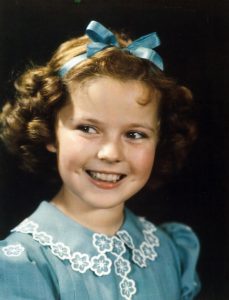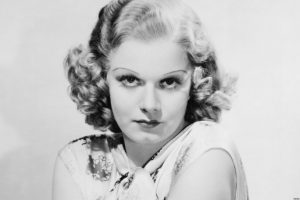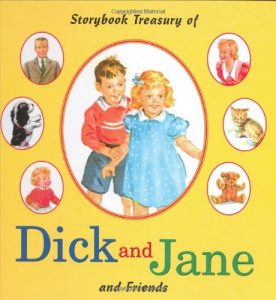
The Hidden Politics of Not Being Beautiful
We live in a society that is controlled through the standards of beauty. The first thing that people notice when they see you is how you look – your appearance. We cannot escape how we look, but we still yearn and try to mask, conceal, or change what we look like so that we may appear in a certain way to those people around us. No matter who we may be, how we might feel, or what we may believe, we are first and foremost defined by what we look like. Yet, trying to achieve societal standards of beauty as portrayed in great works of literature do not always lead to a desirable or perfect life.
Toni Morrison’s The Bluest Eye gives the reader the virtual experience of being someone who falls completely outside of the standards of beauty. Written during the Black is Beautiful movement of the 1960s, Pecola Breedlove, a little black girl, desires to achieve the quintessential beauty standard of that time: blue eyes. She, along with her peers, view Shirley Temple as the universal standard of beauty – blonde curls, blue eyes, and fair skin. Pecola blames her blackness for the many issues that she has in her life; her alcoholic father displaces their family and then later rapes and impregnates her. Pecola believes that if she had blue eyes, her pitiful, tragic life would be transformed into a better, happier life.

Shirley Temple
These beauty standards, which have been perpetuated by the media and the society that continues to subscribe to the standards, serve as a constant reminder to Pecola that she is an outcast. The power of the beauty standard lies in its ability to command society to internalize whiteness as its norm – beauty creates a clear societal hierarchy. The only way Pecola thinks she can be accepted into society is by conforming to the white standards of beauty. Thus, Pecola attempts to conform to the societal-created power structure of beauty through her desire for blue eyes. Pecola, as Morrison explains, “was introduced to another [power] – physical beauty. Probably the most destructive idea in the history of human thought… [it] originated in envy, thrived in insecurity, and ended in disillusion” (95). Morrison affirms Pecola’s awareness of her place in society as she writes, “as long as she looked the way she did, as long as she was ugly, she would have to stay with these people. Somehow she belonged to them… if those eye of hers were different, that is to say, beautiful, she herself would be different” (45). Pecola blames the standard of beauty—those blue eyes, the opposite of her blackness—as the cause of her having such a terrible life. Pecola links beauty with having a good life and being loved – and if she had blue eyes, she would be beautiful and be worthy of love.

Morrison uses Pecola’s desire for blue eyes to demonstrate the destructive tendencies that the construction of beauty standards has on not only society as a whole, but specifically on black women because these standards diminish their blackness. Society creates and dictates what beauty is, and these black women learn to internalize a hatred for their blackness in this culture that idealizes white femininity and beauty. Morrison gives the reader the experience of the destructive nature of beauty through Pecola’s descent into insanity. Pecola’s experiences and conditions, which trigger her mental illness, are a result of her not being able to fit into society. Her hopeless longing for acceptance facilitates her loss of reality. Thus, Pecola’s state of delusion exemplifies how destructive it can be for someone to strive for what society perceives to be beauty. Toni Morrison politicizes society’s perception of beauty to show how beauty can be destructive.

Jean Harlow, a popular actress from the 1940s. During this time, beauty standards were constructed based on actresses like Harlow.
In the essay “Culture and Anarchy,” Matthew Arnold explains how the most valuable aspect of culture is “sweetness and light” – beauty and intelligence (52). Beauty, again, is an important standard for society. Sweetness and light, as Arnold says, is “the perfection of human nature” (52). He continues, describing that the passion for making sweetness and light prevail in society will destroy the social classes and religious bias. With sweetness and light, a human can find perfection. And, in finding sweetness and light – beauty and intelligence – a person will have a head start on a life worth living. Arnold further states that the best way to find human perfection is by turning to the classics for guidance. The ambitious literature of the classics gives society a shared variety of the living experience. This literature will teach you how to live a life worth living.
Arnold explains that finding sweetness and light – beauty and intelligence – will give a person a head start on a life worth living. The best way to find human perfection is by turning to the classics for guidance. The ambitious literature of the classics gives society a shared variety of the living experience. This literature will teach you how to live a life worth living.
The classics, albeit valuable, can be extremely discriminatory if one does not have the means to get, read, or understand the conflicts and resulting solutions written about in those books. Pecola falls into the category of those who cannot even access the classics, regardless of whether or not she can actually read or understand them. Pecola is just one of the many poor, unprivileged, minimally educated children in the society she lives in. She, just like the other members of her society, cannot turn to the classics for help in improving her life. So, those less fortunate turn to the culture and media that they do have access to and have learned from. In Pecola’s case, she turns to the stories of Dick and Jane, a white idealized family. Morrison, by starting each chapter with excerpts from this book, creates the standard of beauty that every member of society can and should strive to achieve. Dick and Jane is a substitute for the classics in this society – they are the examples of the perfect human condition that are available to read. Morrison blatantly shows the reader what the members of society should be striving to achieve – this white, idealized family. Pecola believes that this family is the perfect condition of humanity, so she constantly compares her tragic life to this perfect white family and others she sees in her society. Attaining beauty – blue eyes – is her way of achieving a live worth living.

The cover of Dick and Jane
Beauty, which was founded on the value that whiteness was inherently more beautiful than blackness, has created a society that perpetuated social classes instead of abolishing them. When one member of society is inherently better than another based on their appearance, then a hierarchy of status has already been established. In essence, Pecola was attempting to follow Arnold’s advice for achieving happiness through beauty; the media that she encountered – the white, perfect family – showed her how to achieve human perfection. The desire for blue eyes was Pecola’s way of using the notion of sweetness and light to find that perfection, but it instead resulted in the destruction of Pecola as a person.
How can something as destructive as beauty and the structure of beauty in society be considered a way to help people reach perfection? The quest for beauty in Pecola’s life facilitates her loss of reality and descent into mental illness. Instead of being enlightened by her quest for beauty, she is destroyed by it. Throughout her life, Pecola longs for beauty and does everything she can to gain it. Yet, she lives with a constant awareness that she will never be truly beautiful and therefore never loved. This hopeless desire for happiness through beauty leads Pecola down a path she could never recover from.
When Pecola is raped and subsequently impregnated by her father Cholly, she copes with the rape by finally believing that she has been gifted with beauty – the blue eyes. By writing this scene in Cholly’s perspective, the nature of the crime is changed – it is not just an absurd and terrible act of violence; rather, his rape is a way for him to express love for Pecola. The only true affection that Pecola experiences in her life is through this act of terror. Pecola falls into a state of delusion, believing that the strange looks and altered behavior of the townspeople are not a result of her father’s rape and molestation of her, but rather a result of her wish of wanting blue eyes finally coming true. And, the contempt that she endures are because she, the once ugliest girl, has been gifted with the bluest eyes. Pecola confides in her imaginary friend at the end of the novel that “everyone’s jealous [of the blue eyes]. Every time I look at somebody, they look off” (Morrison 195). Pecola believes that she has now achieved the white standard of beauty, which gives her fulfillment. But, by attaining beauty, she, as a person, is fundamentally destroyed. Instead of finding happiness, as Arnold argued in “Culture and Anarchy,” achieving the standard of beauty has only brought her trauma, humiliation, and mental illness.
By giving the reader the virtual experience of someone who is ruined by beauty, Morrison politicizes that the desire for beauty is devastating to the human condition. Beauty, as the reader discovers through Pecola’s experience, is not going to help a person find what is good and what is true in this world. Beauty teaches Pecola that her life was not worth living, and her desire to find this better life leads to her destruction. Although societal standards of beauty often serve in great works of literature as beacons on the path of a life worth living, beauty will not lead to the finding of enlightenment or the path of human perfection.
Bibliography
Arnold, Matthew. Culture and Anarchy. (Oxford: Oxford University Press, 2006).
Morrison, Toni. The Bluest Eye. (New York: Vintage International, 2007).